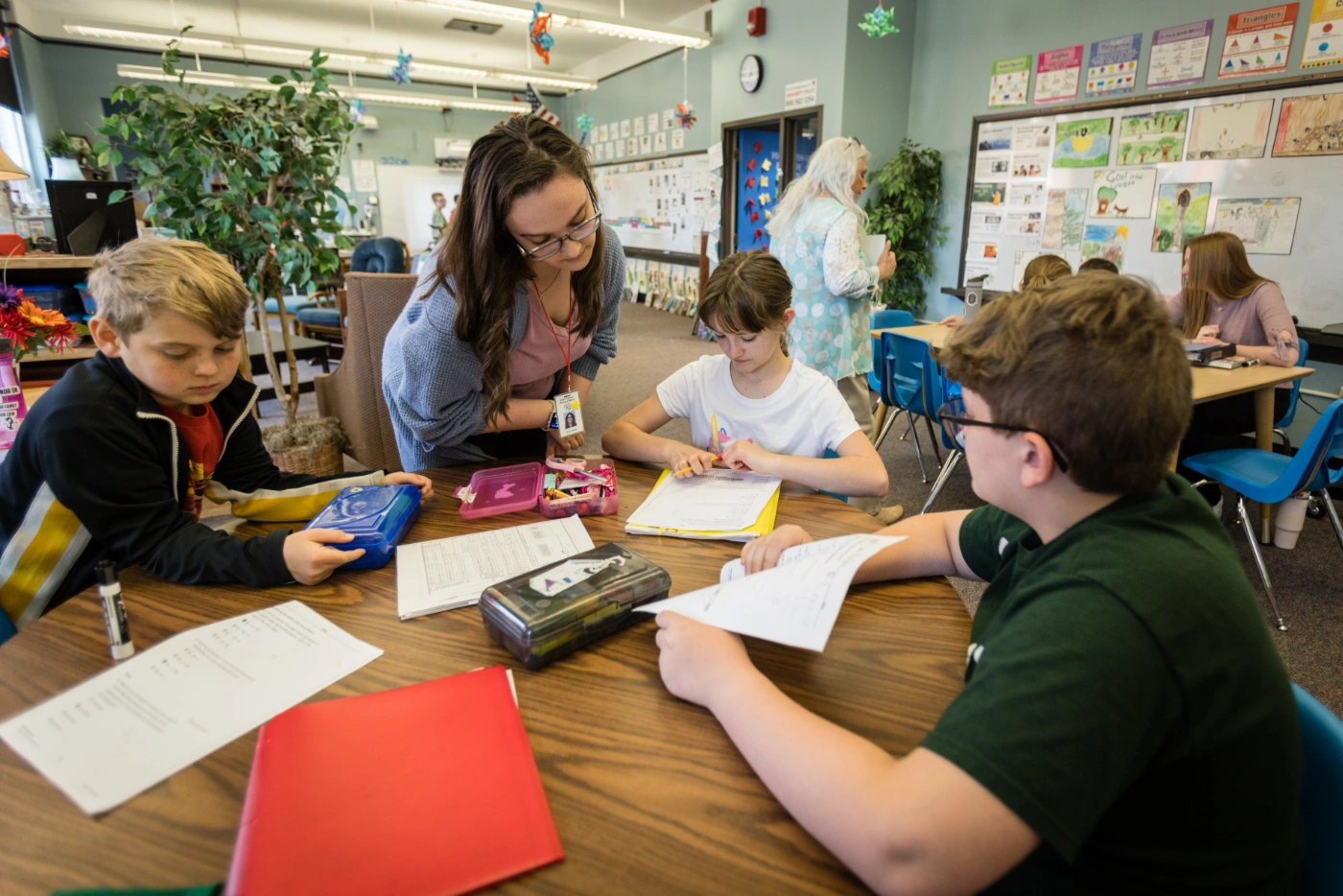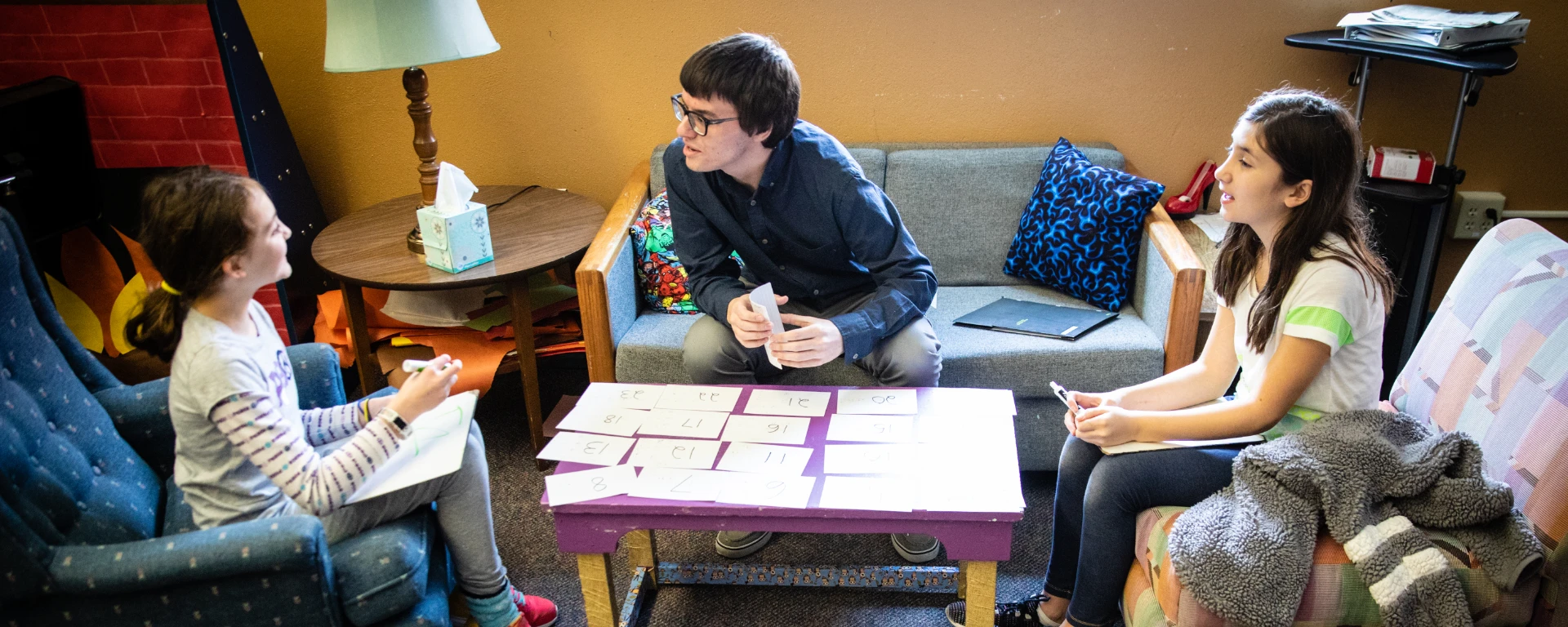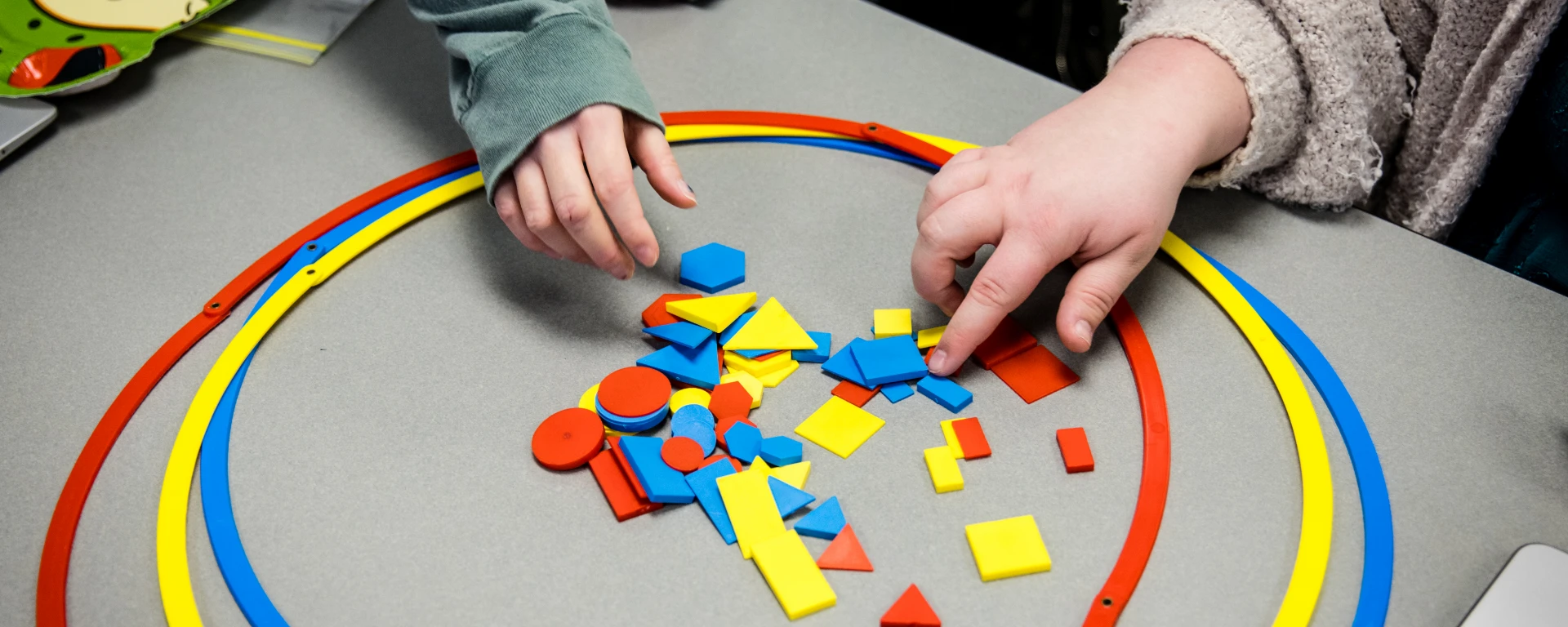
Are you passionate about learning and academics? Do you want to inspire the next generation and help them succeed? If so, an education major could be a rewarding path for you. In this blog, we'll explore the fundamentals of what elementary education is, the essential role elementary educators play in students' lives and how to determine if this degree path aligns with your skills and career goals.
Elementary education focuses on teaching children from kindergarten through sixth grade, building a foundation in key subjects like reading, math, science and social studies. Beyond delivering lessons, elementary educators help nurture students' intellectual, social and emotional development. As an elementary teacher, you'll guide young learners, help them develop critical thinking skills and support their growth into confident, curious and successful individuals.

An elementary education degree program prepares you to teach young students by building a strong foundation in instructional methods, child development and subject-specific knowledge. This degree equips you with the skills to manage classrooms, engage students in meaningful learning and adapt teaching strategies to meet a range of student needs.
In most elementary education programs, you'll study core subjects like literacy, math, science and social studies while also learning how to create effective lesson plans and foster student growth. The best programs offer career-relevant experiences so you can apply what you've learned in real classroom settings. The program should also ensure you can obtain teacher certification, qualifying you for roles in public and private schools.
With Northwest Missouri State University's elementary education degree program, you'll be certified to teach students in grades 1-6 – children who are typically 6 to 12 years old. You'll choose a concentration in areas like language arts, social studies, science, mathematics, physical education, special education and technology, helping them develop foundational skills while supporting their social and emotional growth.
So, how will you build effective teaching skills? By choosing an elementary education degree that offers ample real-world experiences – even in your first semester – along with expert faculty mentorship and career opportunities that align with your goals. An ideal program should include comprehensive coursework ![]() , extensive field experiences and guidance from dedicated educators.
, extensive field experiences and guidance from dedicated educators.
You'll find all of that at Northwest.
A strong emphasis on career-ready experiences is one standout feature of Northwest's program. From your very first semester, you'll engage in:
Faculty mentorship is another key component. Northwest faculty members:
Accreditation is also key to ensuring your degree holds real-world value. Northwest's elementary education program has maintained accreditation through the:

Both elementary and secondary educators work with young learners, but the focus, teaching methods and student engagement differ between the two:
Choosing between elementary and secondary education depends on your teaching style and interests. If you enjoy working with young learners, creating foundational experiences and teaching multiple subjects, elementary education may be the right path. If you prefer focusing on one subject and guiding older students as they prepare for their futures, secondary education could be a better fit.
No matter which path you choose, earning an education degree from Northwest gives you the training and experience to become a highly effective – and impactful – teacher. If you think secondary education is for you, explore the bachelor of science in middle school education at Northwest.
Earning a degree in education takes more than a love for working with children. It requires patience, adaptability and a commitment to helping young students succeed. If you're passionate about guiding future generations, enjoy problem-solving and do best in a collaborative environment, this could be the right path for you.
At Northwest, you'll gain the skills and experience to succeed. Experienced faculty mentor you, helping refine your teaching strategies, navigate classroom challenges and prepare for licensure – and your future career. You'll also get early classroom experience in diverse school settings, equipping you to lead, inspire and make a lasting impact.

At Northwest, you won't just learn how to teach – you'll actively develop the skills and experience to succeed in real classrooms well before graduation. The elementary education degree program integrates immersive learning experiences that strengthen your ability to manage classrooms, engage students and adapt to different teaching environments.
Our 7th-semester Residency Practicum ![]() is another unique practical learning opportunity, giving you the chance to take on a leadership role in curriculum planning and instructional design under the guidance of experienced educators. This semester-long experience provides a deeper level of preparation than standard coursework, giving you the opportunity to refine your teaching approach before your final student-teaching placement.
is another unique practical learning opportunity, giving you the chance to take on a leadership role in curriculum planning and instructional design under the guidance of experienced educators. This semester-long experience provides a deeper level of preparation than standard coursework, giving you the opportunity to refine your teaching approach before your final student-teaching placement.
Northwest is one of only three higher ed institutions in the nation to receive the Christa McAuliffe Excellence in Teacher Education Award – twice – from the American Association of State College and Universities (AASCU). School administrators rank our teacher graduates #1 out of 41 programs for effectiveness in the field. These distinctions highlight the program's ability to produce highly capable educators who are ready to make an impact.
You'll also benefit from our mentoring program, Kind Individuals Dedicated to Students (KIDS). Through it, you'll connect with local elementary students in Maryville and learn to develop respectful and positive relationships with them and their families – even before you're an official educator.
With 100% job placement for elementary education graduates and partnerships with over 85 school districts, Northwest connects you directly to career opportunities. Whether you're exploring what elementary and secondary education is or deciding which education degree best fits your goals, Northwest's emphasis on real-world experience, faculty mentorship and practical training ensures you'll enter your future classroom with the confidence and skills to make an impact on your students' lives while building a successful and fulfilling career.
Now that you have answers to questions like "what is elementary education" and "what is an elementary education degree," explore how the elementary education bachelor's degree program at Northwest can prepare you for a rewarding teaching career.